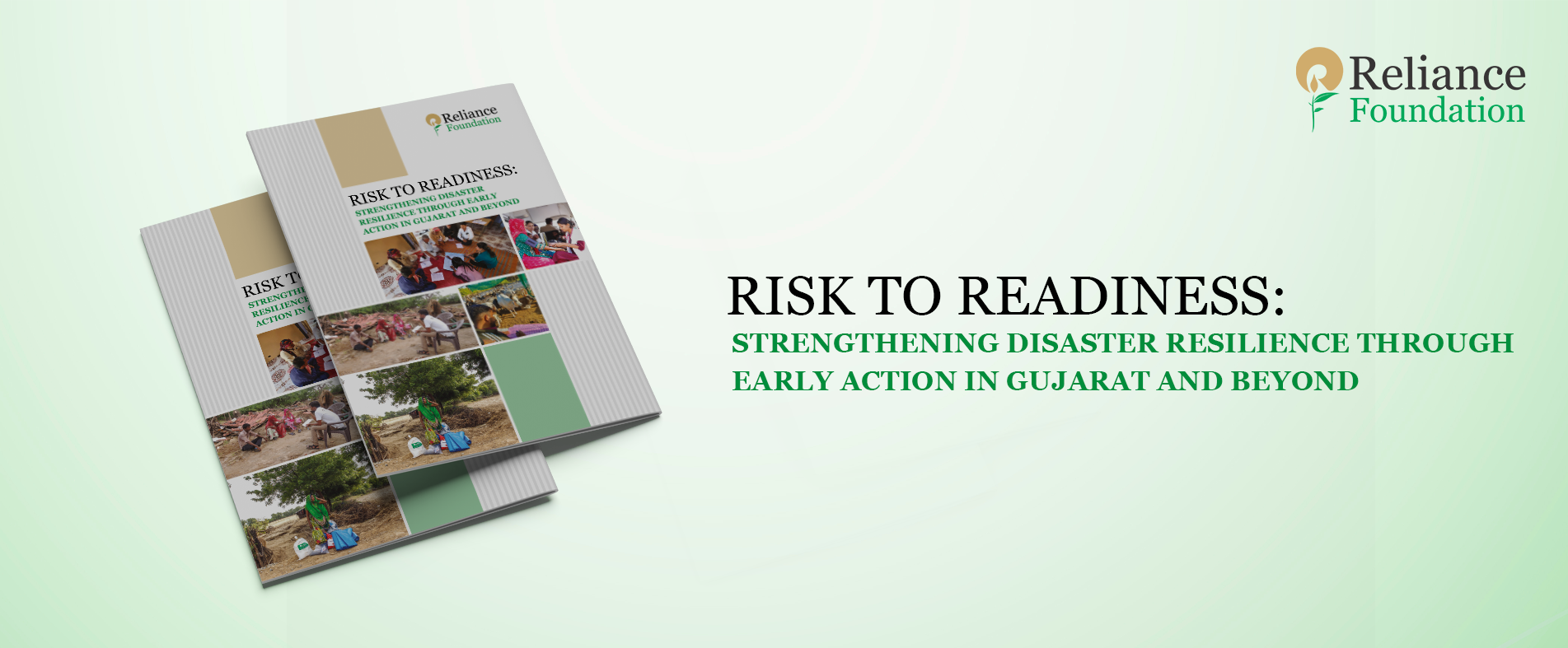
Risk to Readiness: Strengthening Disaster Resilience through Early Action in Gujarat and Beyond
Risk to Readiness: Strengthening Disaster Resilience through Early Action in Gujarat and Beyond highlights the growing adoption of anticipatory action frameworks and the shift from reactive to proactive disaster management. Disasters are becoming more frequent and severe due to climate change, urbanisation, and socio-economic vulnerabilities. Traditional disaster response has often been reactive, with action taken only after hazards have struck. Anticipatory Action (AA) is shifting this approach by linking early warnings to pre-planned responses, helping to mitigate damage before crises unfold.
Anticipatory action bridges the gap between early warning systems and emergency responses by using risk-informed triggers, pre-arranged resources, and pre-planned interventions. As disasters intensify due to climate change and socio-economic pressures, a shift from reactive to proactive responses can lower humanitarian costs and safeguard communities more effectively. Studies highlight the cost-effectiveness of AA, with FAO findings indicating that every dollar invested towards anticipatory actions can yield seven dollars in avoided losses.
This publication showcases Reliance Foundation’s journey in advancing anticipatory action, early warning systems, and community preparedness in Gujarat and beyond — ranging from the 2001 earthquake and droughts to Cyclone Biparjoy in 2024. These insights reinforce the importance of collaboration with public institutions, grassroots organisations, and local communities to strengthen disaster resilience.
